While the pandemic and its impacts has dominated the news cycle for nearly two years now, major crime and tragedy continue to periodically occur.
The year experienced instances of murder, fatal crashes and public corruption.
2021 also saw the judicial system take small steps towards returning to in-person hearings with two major trials resulting in long prison sentences for men convicted of murder and the sexual assault of a child.
Here are a look at some of those stories, which are summarized in chronological order.
DEADLY DISPUTE
The news broke late on Feb. 23, a Tuesday.
A 6-year-old girl had been shot and killed during a drive-by in rural Mission.
Over the next few days, the Hidalgo County Sheriff’s Office announced the information they could to the public in a way that ensured the integrity of the investigation and deputies would make four arrests.
The suspects in the case include 43-year-old Alton resident Marco Antonio Chairez, 30-year-old Mission resident William Garcia, 44-year-old Alton resident Juan Ramon Garcia-Olaguez and 43-year-old Edinburg resident Daniel Guzman.
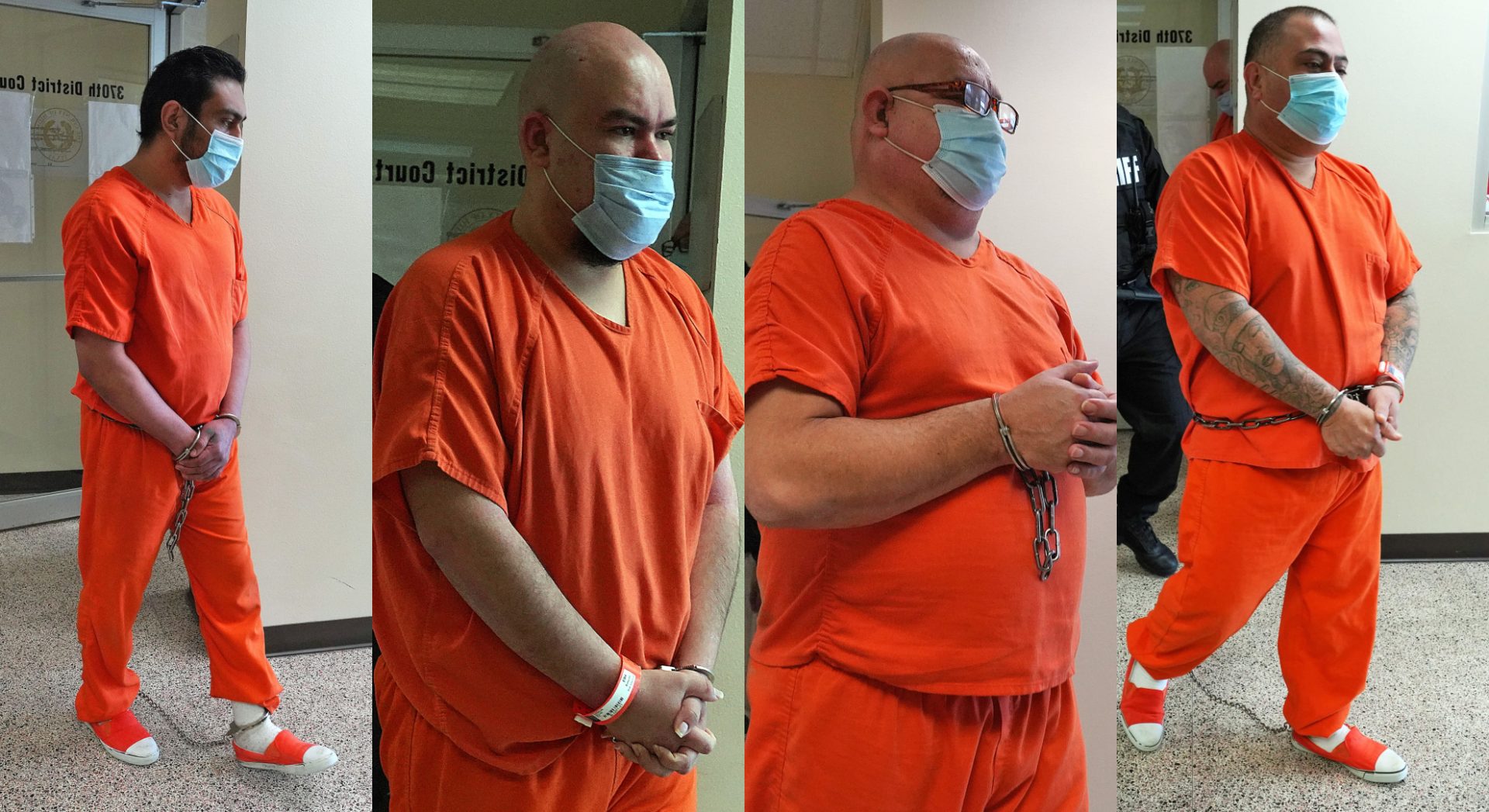
All of the men face a two-count indictment charging them with capital murder of a person under ten years old and murder.
Prosecutors will not seek the death penalty should the men be convicted.
At a news conference after the shooting, Sheriff J.E. “Eddie” Guerra said approximately a dozen rounds were shot at the home where the child was killed following a neighborhood dispute.
The men are accused of killing Yvonne A. Mireles, who was watching television when she died.
Prosecutors allege that Chairez and Garcia are the shooters.
The men have pleaded not guilty to the charges.
CORRUPT GOVERNOR
A dramatic scene played out in Brownsville approximately three years ago.
Federal authorities found former Tamaulipas Governor Tomas Yarrington in Italy and had arrested him on eight charges involving his alleged involvement with drug cartels from 1998 to 2013.
He had been on the run for around six years.
When he was brought to the courthouse there, a helicopter buzzed over the judicial building keeping a close eye on a caravan of black SUVs transporting Yarrington for his first appearance.

Nearly three years later, on March 25, Yarrington appeared in shackles in a Houston courtroom and in a green jail uniform in front of U.S. District Judge Hilda Tagle.
He was ready to plead guilty.
The former governor said “culpable” to conspiracy to money laundering and all the other charges, which included accusations of cocaine and marijuana trafficking, were dropped.
Yarrington has yet to be sentenced, but he faces a maximum of 20 years.
LEAVING THE SCENE
At some time after 5 a.m. on April 24, Border Patrol Supervisor Francisco Vallejo called the U.S. Customs and Border Protection’s Office of Personal Responsibility.
He said he had hit a cyclist in the city of Hidalgo and believed the man had died. Vallejo, however, didn’t render aid and instead went to spend time with his ex-wife and their children, according to a probable cause affidavit.
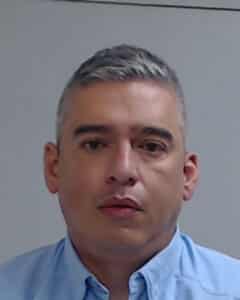
At 5 a.m. that morning, a police officer found the the body of 71-year-old Humberto Torres Irachete in the 600 block of East Coma St. in Hidalgo.
Iracheta’s body was found about 100 feet away from his blue bicycle and suffered a gruesome injury in his stomach area, according to the affidavit.
Vallejo is charged with accident involving death.
He bailed out of the Hidalgo County Adult Detention Center the following day on a $100,000 bond.
His status with Border Patrol isn’t immediately clear and he has not yet been indicted.
JURY TRIAL
In July, 34-year-old Mercedes resident Fidencio Castillo Cosme stood in front of 370th state District Judge Noe Gonzalez and pleaded not guilty to fatally stabbing 16-year-old Armando Torres IV on Sept. 28, 2020.
This was Hidalgo County’s first jury trial in nearly 17 months.
In-person hearings had ground to a halt during the pandemic.

Several days after opening arguments, the jury found Castillo guilty and then sentenced him to 85 years in prison.
During victim impact statements, violence nearly broke out after Torres’ mother, Norma Garcia, repeatedly called Castillo trash. Her long-term partner Prentis Alcalar then said a few words before rushing Castillo.
Castillo’s attorney, O. Rene Flores, flipped over a table blocking Alcalar’s path toward Castillo, which gave deputies enough time to restrain Alcalar.
Castillo is appealing.
COLD CASE
For two decades questions lingered for Monica Salmon over her father’s murder in Rio Grande City.
Dario Salmon was stabbed to death on Jan. 21, 2001, and his body was discovered in the front yard of his home.
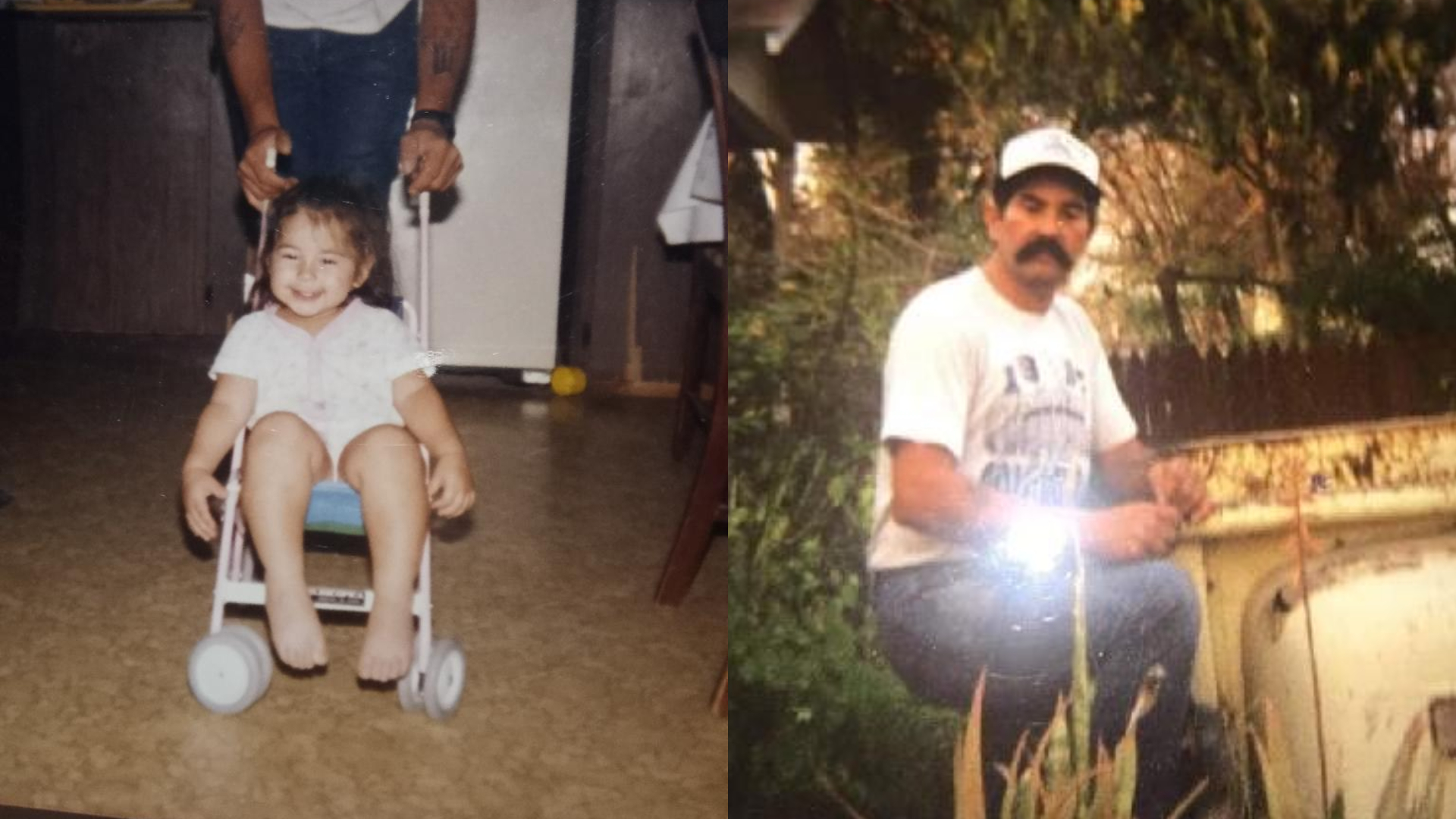
In late July, Robert Caples, commander of the Starr County Special Crimes Unit, told The Monitor that the Texas Department of Public Safety crime lab in 2004 matched the DNA found on a cigarette at the crime scene with Luis Carlos Mares, who was a member of the Texas Mexican Mafia at the time.
Caples said that evidence had been ignored and Mares told the newspaper in an interview from prison that he had told former district attorney Heriberto Silva about the murder nearly 17 years ago, a claim that Silva denies.
In a confession, Mares said a man named Joe Bazan killed Dario, according to investigators.
Both Dario and Bazan were romantically linked to a woman named Betty Guerra and Bazan blamed Dario for Guerra’s drug addiction.
Bazan was shot, burned and killed in 2005.
As for Mares, he is serving two 60-year sentences for an attempted capital murder in Webb County in 2004 and for strangling a woman with her own shoelace in Hidalgo County in 2003.
Mares has been indicted on a charge of causing Darios’ death and for driving Bazan to the scene of the murder in Dario’s front yard.
MAJOR SMUGGLING CRASH
On the afternoon of Aug. 4, a van carrying approximately 30 people in the country illegally was just south of Encino in Brooks County.
At around 4 p.m., the van’s driver crashed into a utility pole while trying to turn off of Highway 281 on Business 281 about a mile and a half south of Encino, approximately 8 miles from the Falfurrias Border Patrol checkpoint.
Ten people died.

Brooks County Sheriff Benny Martinez said the deceased included a woman and nine men who were from Mexico, Guatemala and Honduras.
The van was not fleeing law enforcement. The vehicle was top heavy and traveling too fast.
Twenty people were injured in the accident with conditions ranging from critical to serious.
The driver died.
JUSTICE OF THE PEACE
During the early morning of Sept. 16, federal agents spread out in Starr County to arrest 20 people accused of their involvement in a drug trafficking organization.
One of the people arrested was Precinct 4 Justice of the Peace Roel “Role” Valadez.
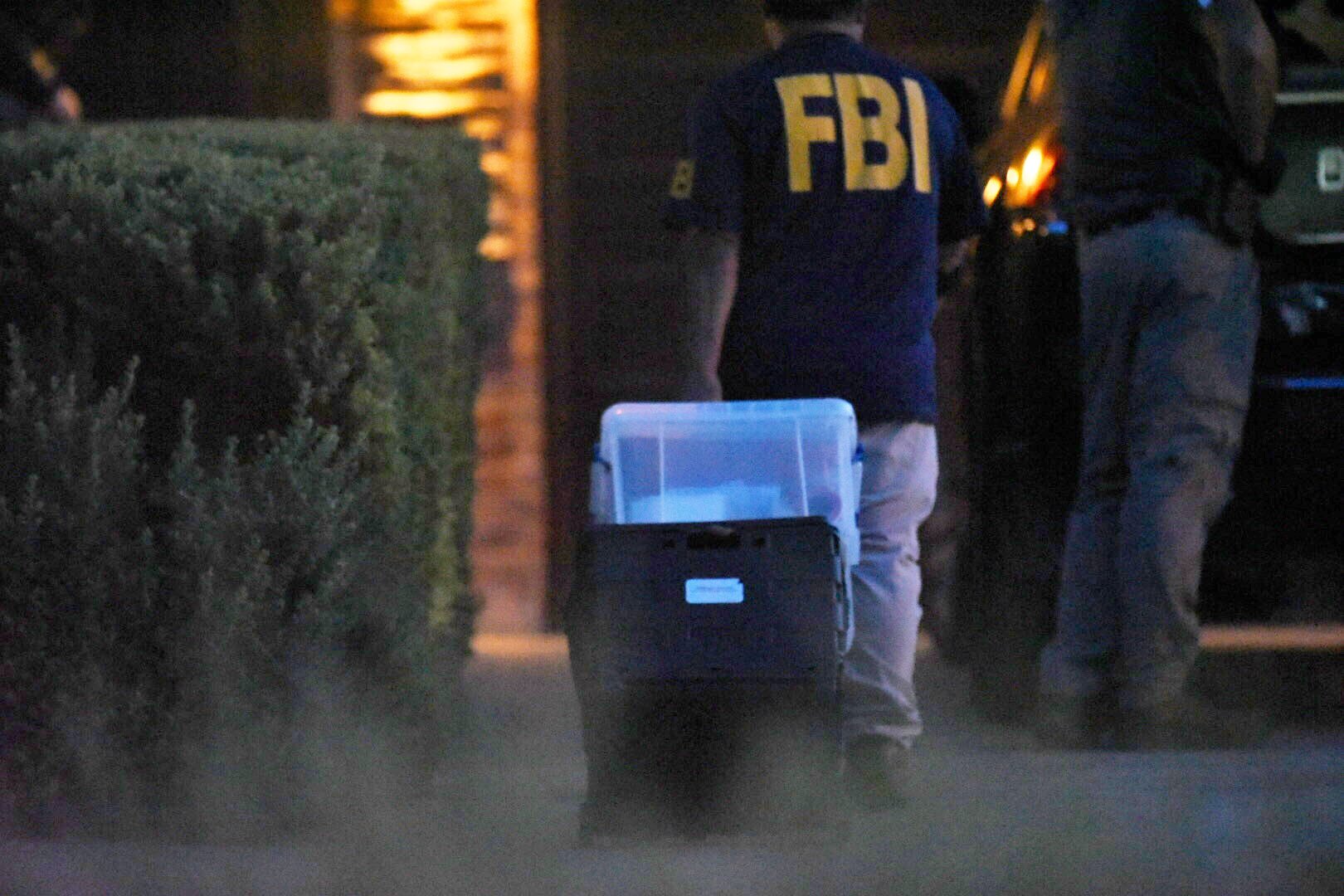
He had been indicted along with his co-defendants on Sept. 7. That charging document was unsealed the day of the arrest.
Federal prosecutors allege that wiretaps indicate that Valadez negotiated a “substantial amount of marijuana” to be taken to Houston as well as negotiating smaller sales of marijuana.
He’s also accused of informing co-defendants of where their companions were in the judicial system, helping them make bail and identifying vehicles driven by law enforcement.
Prosecutors also said they suspect his father and father-in-law of trafficking pain killers.
The authorities also allege a 40-year-old man named Diego Alberto Reyes Roiz, who is charged in the indictment, was in line to become a decision maker for the Gulf Cartel.
However, he is now in custody.
DPS TROOPER
As October drew to a close, the FBI arrested a Texas Department of Public Safety Trooper whose family has alleged ties to organized crime in Mexico and charged him with drug trafficking.
The FBI arrested Pablo Talavera Jr. on Oct. 29 and charged him with conspiracy to possess with the intent to distribute a controlled substance between May 26 and Sept. 16.
The indictment against Talavera, who was assigned to Texas Governor Greg Abbott’s border security initiative Operation Lone Star, alleges that his involvement in his family’s alleged drug trafficking organization began on Aug. 19, 2019.
The Monitor learned of Talavera’s involvement in Operation Lone Star through open records request with DPS.
He had issued more than 200 warnings or citations for traffic violations while working Operation Lone Star.
The indictment alleges that Talavera conspired to smuggle heroin and methamphetamine and the initial complaint against him alleges he searched law enforcement sensitive information for his father, who was kidnapped and released in 2019 by a cartel in Reynosa.
Prosecutors say the evidence shows Talavera was aware of his father’s kidnapping and that his family was involved with organized crime.
HEATED HEARING
On March 16, 2020, visiting state District Judge Carlos Valdez scheduled a trial for former Edinburg Mayor Richard Molina.
The visiting judge set the trial for June 1.
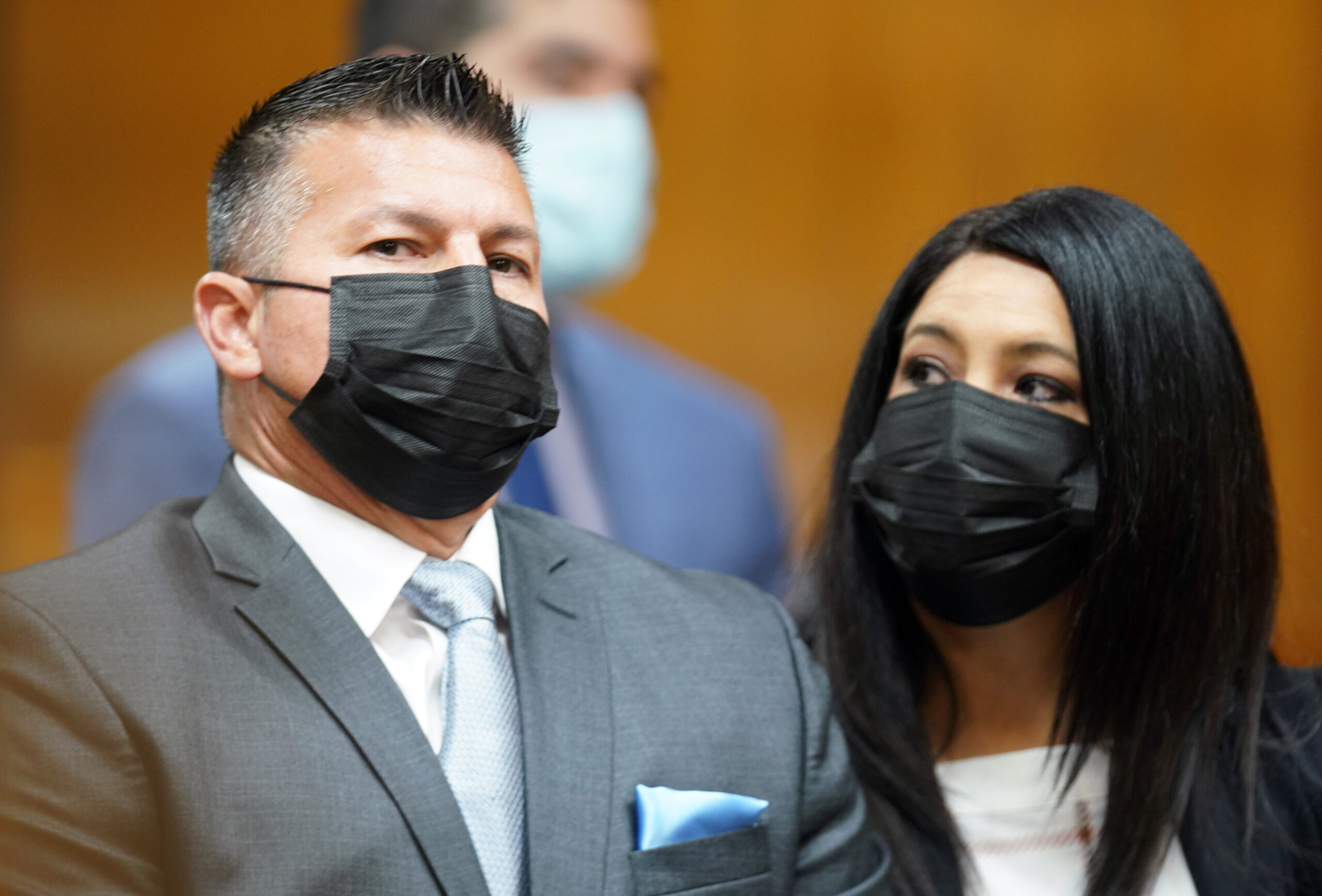
But just days after that March 16, 2020, order, the pandemic gripped the Rio Grande Valley and by May the trial was indefinitely postponed.
Then, in October, as cases began to wane, the Hidalgo County Board of Judges approved a slow approach to summoning people for jury duty.
That’s when Michael Garza, who is prosecuting the case along with the Texas Attorney General’s Office, filed a motion for a jury trial setting.
Molina is charged with voter fraud and he adamantly denies the accusations and has pleaded not guilty.
The day before the Nov. 15 hearing to set a trial, Molina’s attorney, Carlos A. Garcia, filed a motion seeking to disqualify District Attorney Ricardo Rodriguez Jr. and his office from prosecuting the case.
Garcia’s motion mirrored allegations that Molina has lobbed since his arrest.
Namely that Rodriguez’s aunt, Mary Alice Palacios, initiated the investigation into him with a complaint to the Secretary of State’s Office regarding the voter fraud allegations.
According to Molina, Palacios had an axe to grind because she lost a lucrative insurance contract with the city of Edinburg after Molina was elected.
Palacios denies that allegation.
When the Nov. 15 in-person hearing arrived, Rodriguez himself took the stand, testifying that he had not helped or consulted with his aunt regarding her complaint to the Secretary of State.
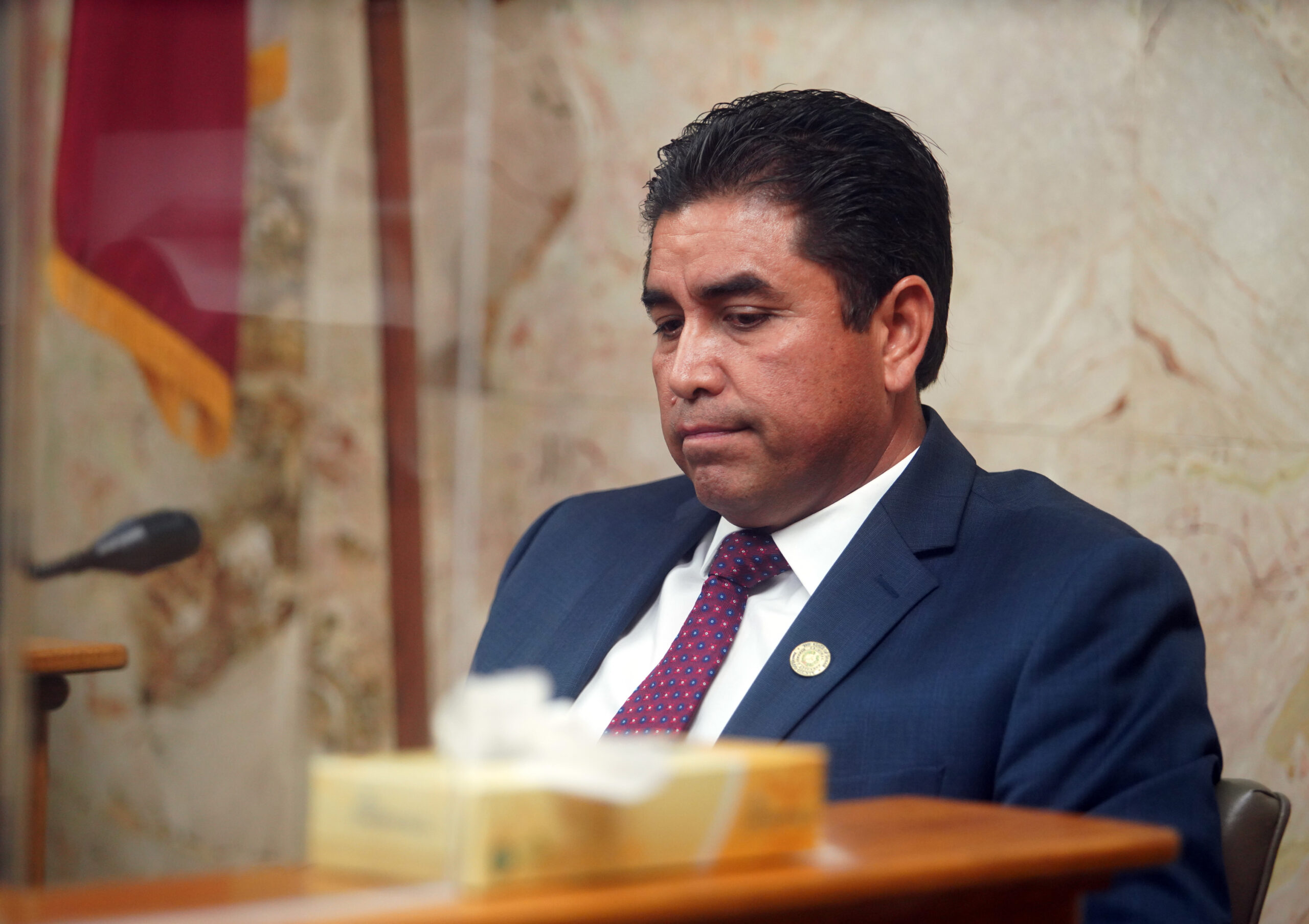
Palacios also took the stand and denied that anyone, including Rodriguez, assisted her in preparing her complaint to the Secretary of State.
A trial date has still not been set and Molina lost a runoff election to former city manager Ramiro Garza in early December.
Both motions and the hearing occurred during his reelection bid and his attorney sought to cast the motion to set a jury trial as a ploy to undermine the voters of Edinburg, which Garza, the prosecutor, denies.
JUSTICE SERVED
On Dec. 10, jailers escorted a handcuffed 69-year-old Mission resident named Enrique Moreno Sanchez in to the 206th state District Court.
Moreno knew what was coming.
However, he seemed resigned and unemotional.
As he sat handcuffed next to his attorney, he probably thought about his trial — the second major trial since the pandemic.
Moreno had been found guilty by a jury of 13 counts of sexually abusing a child and the jury recommended sending him to prison for the rest of his life.
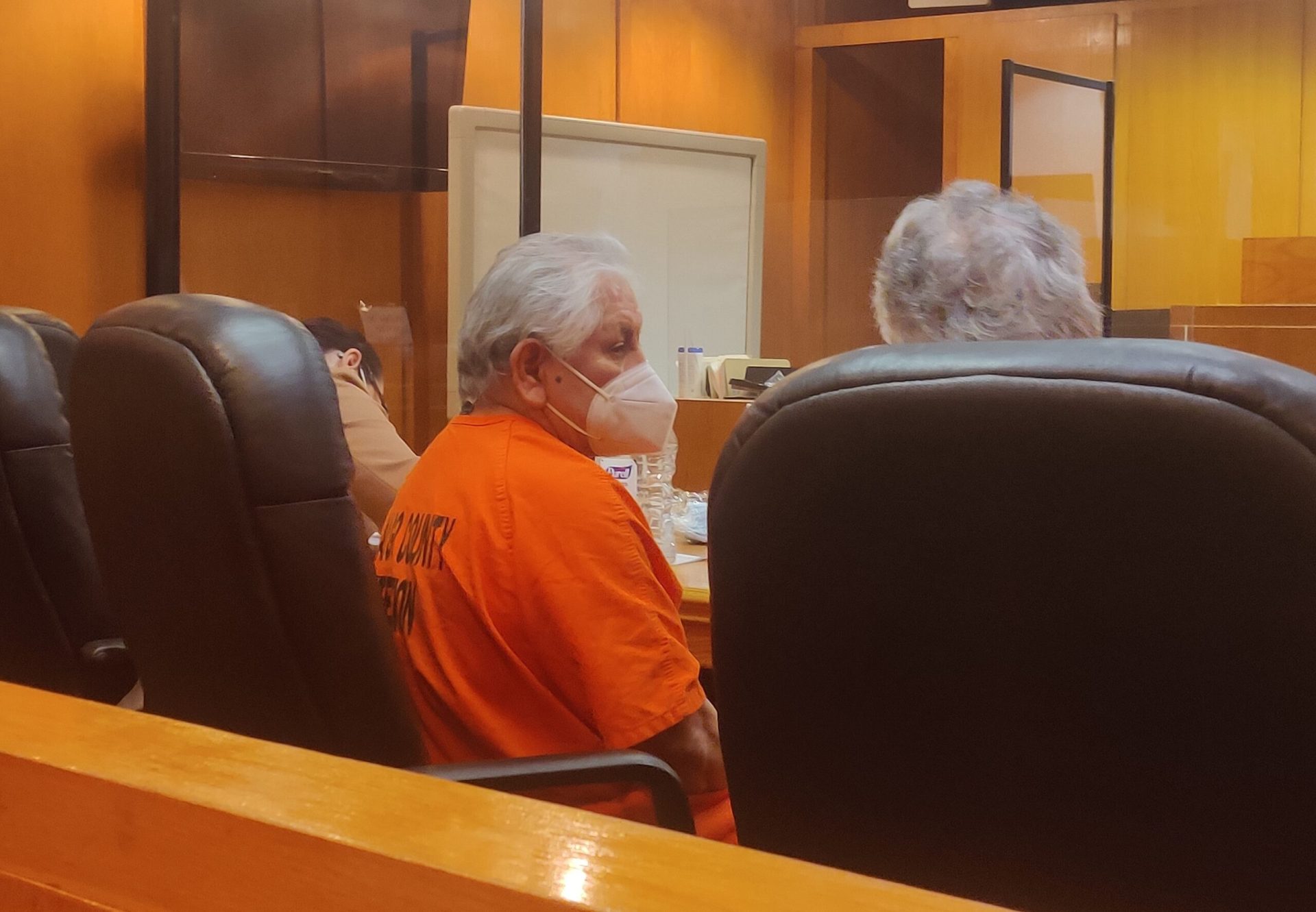
That jury recommended he serve 99 years on seven counts against him, 20 years on the remaining counts and receive fines totaling $130,000.
He knew that 206th state District Judge Rose Reyna would likely sentence him to that recommendation.
That’s exactly what she did.
Reyna, matter-of-factly, read the jury’s recommendation during the sentencing hearing and then sentenced him as such, treating Sanchez with respect and making sure that everything was legally set up for his trip for prison and for his appeal.
Hope Palacios, chief of the Special Crimes Division, said in an interview with The Monitor that the sentence sends a message to the victim, to other children who have been victimized and to Moreno about how horrible his crime was.
“The community needs to know how seriously we take these types of offenses and they need to understand what we need to do to protect our community,” she said.
Moreno plans to file a pro se appeal.



